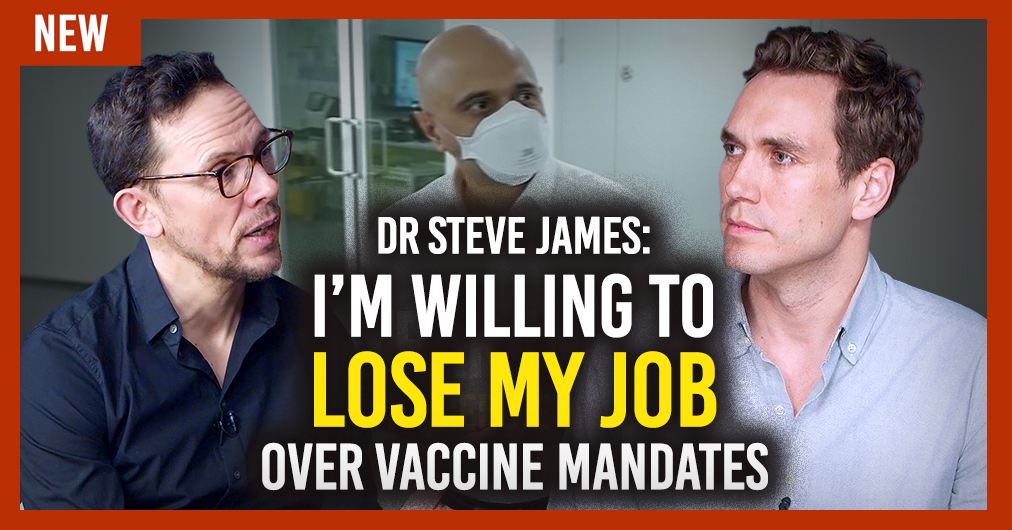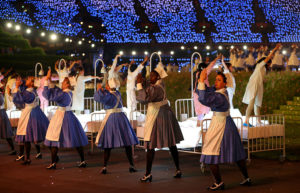When it became clear two years ago that the NHS could be overwhelmed by a terrifying new virus, Britain leapt to its support: we clapped, we donated and we decided to paint rainbows. What we didn’t do, however, was question why our healthcare system was so vulnerable to the challenge — and why, yet again, the brunt of its failure and the resulting lockdown was being borne by a particular demographic: women.
Today, little has changed. The NHS’s looming vaccine mandate — requiring that employees are vaccinated against Covid before April — has inspired grim warnings about the debilitating impact of an exodus of staff: the effect on waiting times, on overworked doctors and on vulnerable patients. But what’s been ignored is the disproportionate number of women it could affect.
At its heart, of course, this is simply business as usual: women are no strangers to coercion in healthcare, and the NHS’s relationship with its predominantly female workforce has long been problematic. While women make up 76.7% of the NHS’s 1.3 million employees, only 45% of doctors are female; despite recruitment drives, fewer than 30% of surgeons are women, while two-thirds of consultants are male. No doubt that goes some way to explaining why male doctors earn 20% more than their female counterparts. Figures show that, out of 212 NHS trusts, 198 have a gender pay gap and in 125 the gap is worsening.
But this isn’t simply a money issue: the NHS also has a dismal record on employment rights, discrimination and abuse of its staff. In just one year, nearly 1 in 10 of Unison’s NHS members reported rape, sexual abuse or harassment at work, with 1 in 3 describing such incidents as a “frequent” or “regular” occurrence. Only 15% felt their case was dealt with adequately.
Nor is it just female employees who are affected by the sexism of the NHS. Female patients regularly face discrimination, with their concerns often dismissed as “women’s problems”. For instance, studies have shown how healthcare staff routinely underestimate and undertreat the pain reported by female patients, largely thanks to institutionalised stereotypes about women being oversensitive or over dramatic. Only last year, a Health Minister was forced to admit that “women are not listened to” by the NHS.

Dr Steve James: I’d sacrifice my job over vaccine mandates
Yet in light of multiple reports of systematic failings in maternity care, including harrowing descriptions of how thousands of women have been subjected to “birth rape” — doctors performing vaginal examinations on women without their consent — it’s hard not to conclude that the problem runs deeper than women simply not “being listened to”. In fact, as we’ve seen during lockdown, the medical establishment seems to have all but forgotten that women exist. At the start of the pandemic, a UN report warned that Covid lockdowns could have “serious consequences to women’s health”, including disruption to reproductive and sexual health services, as well as services to combat gender-based violence. But even its authors couldn’t have foreseen the horror of women being forced to miscarry and give birth on their own, while their partners waited in car parks.
Similarly cruel scenarios played out in the realm of contraceptive rights. For the past two years, many providers of contraception have refused to meet women face to face, even if it meant a woman was unable to remove her interuterine devices (IUDs). As with all battles over reproductive choice, this only pushed the problem underground: this time in the form of grim TikTok videos teaching women how to pull IUDs from their uterus at home.
But such sexism was present in almost every aspect of Covid response, up to and including the manufacturing of vaccines. Male bodies are assumed to be the “default” during clinical trials; even on the rare occasions, such as the Covid vaccine trials, when women are included, questions tend not to be asked about specifically female concerns, such as changes in menstruation.
It was hardly surprising, then, that reports of menstrual irregularities following the jabs were downplayed for months, despite tens of thousands of women reporting changes. Rather than being listed as a side effect or investigated promptly, such concerns were often belittled and diminished. For many women, the only available information they had on the menstrual side effects was via social media — hardly a comforting (or reliable) source of information.
It is only now, more than a year after the vaccine rollout began, that researchers have begun looking at the extent and cause of the link. It is likely that the changes to menstrual cycles are benign; a number of possible causes have been suggested, with some also occurring with other vaccinations.
But this comes as scant consolation for the women who’ve experienced unexpected side effects and have, yet again, had to fight to be heard. Distrust can be infectious, and many women have been left feeling understandably uncertain about the ability and willingness of healthcare providers to listen to their concerns and to research the effects of the vaccine on their bodies. Is it any wonder that young women remain one of the cohorts most likely to refuse the jab?
So it seems natural that the NHS vaccine mandate would strike a particular chord with female staff. The policy might not be intrinsically misogynistic — after all, it will affect male staff too — but it’s not inconceivable that female staff will feel particularly alienated. Women possess an already precarious grip on their own bodily autonomy, and for many, their relationship with the NHS, both as patients and as employees, is beset with mistrust and coercion. The constant battle to try and retain control of their own healthcare decisions and the encroaching powerlessness they feel has now begun to even seep into their career.
And yet, it seems peculiar that the same people who pride themselves on supporting a woman’s right to choose in other settings — such as abortion — find no issue in coercively demanding retrospective changes to contracts that further strip the rights of its predominantly female workforce. The progressive emphasis on the right to choose, it seems, only applies if you decide to make the right choice.
Whether or not the NHS vaccine mandate goes ahead — and it seems increasingly doubtful that an overstretched NHS can afford to sack 70,000 employees — for many women who feel deeply resentful of the mandate, the damage has already been done. To them it must seem galling that, after demanding so much from staff, including expecting them to work in Covid-ridden hospitals with minimal protection, the NHS now feels entitled to discard them for the sin of attempting to cling on to their bodily autonomy.
Even if the threat is removed, the continuing willingness of the NHS to disregard women, now with the encouragement of those who were once allies, will be the final straw for many. As its female staff are now discovering, the NHS remains institutionally sexist — and it will take more than a few rainbows and ‘claps for carers’ to cure it.
Disclaimer
Some of the posts we share are controversial and we do not necessarily agree with them in the whole extend. Sometimes we agree with the content or part of it but we do not agree with the narration or language. Nevertheless we find them somehow interesting, valuable and/or informative or we share them, because we strongly believe in freedom of speech, free press and journalism. We strongly encourage you to have a critical approach to all the content, do your own research and analysis to build your own opinion.
We would be glad to have your feedback.
Source: UnHerd Read the original article here: https://unherd.com



